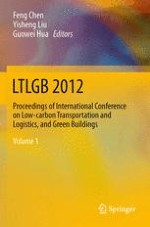2013 | OriginalPaper | Chapter
16. What Counts in the Bus Use for Commuting? A Probe Survey Based on Extended Theory of Planned Behavior
Activate our intelligent search to find suitable subject content or patents.
Select sections of text to find matching patents with Artificial Intelligence. powered by
Select sections of text to find additional relevant content using AI-assisted search. powered by
